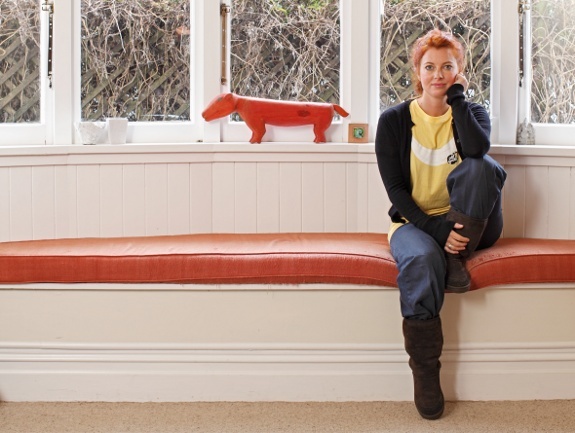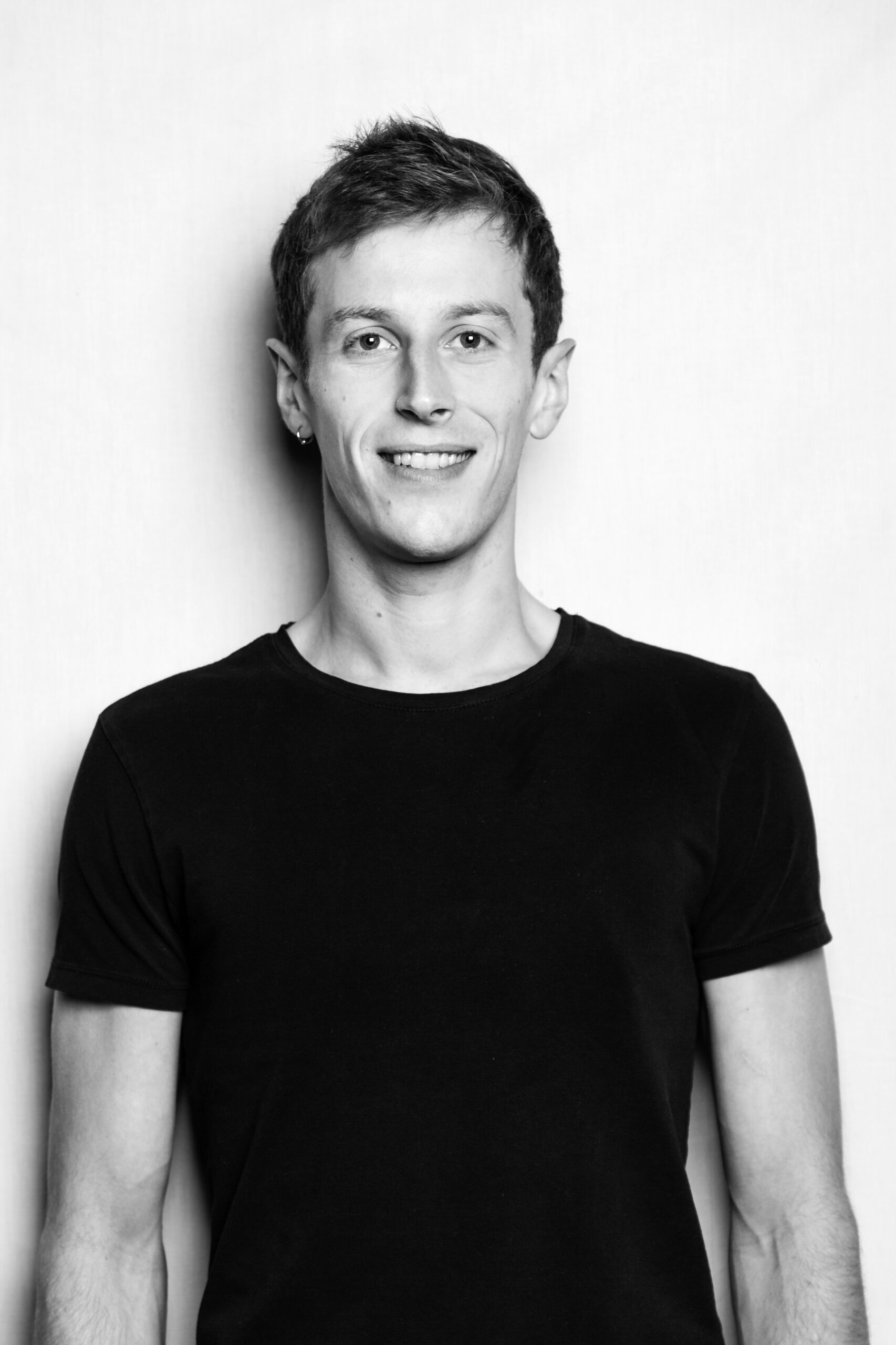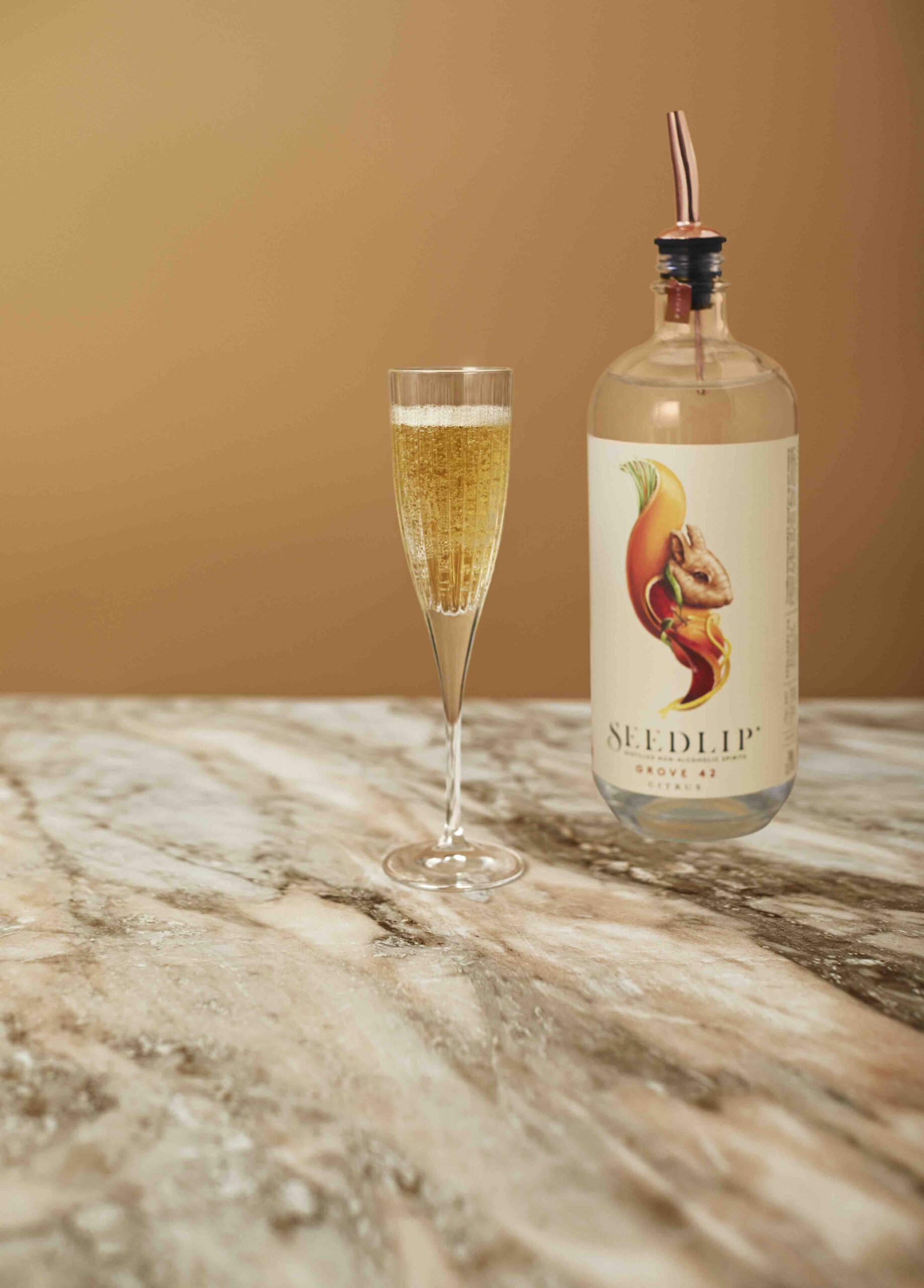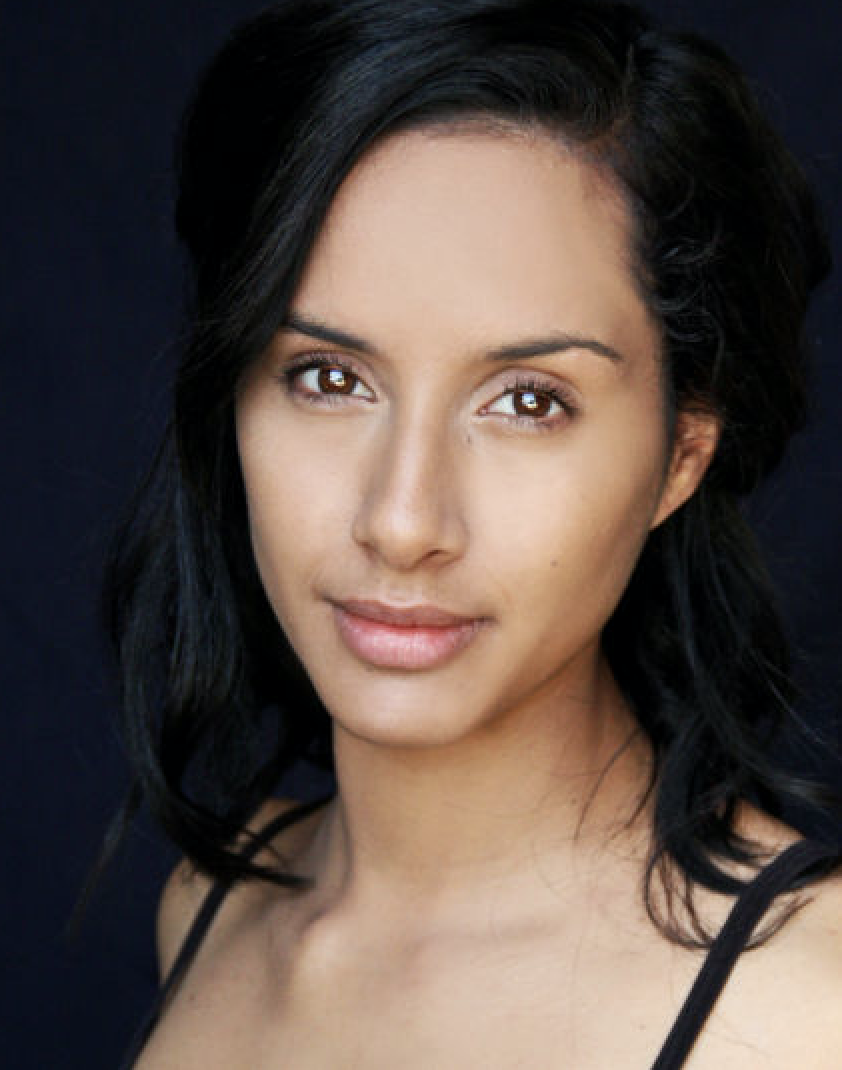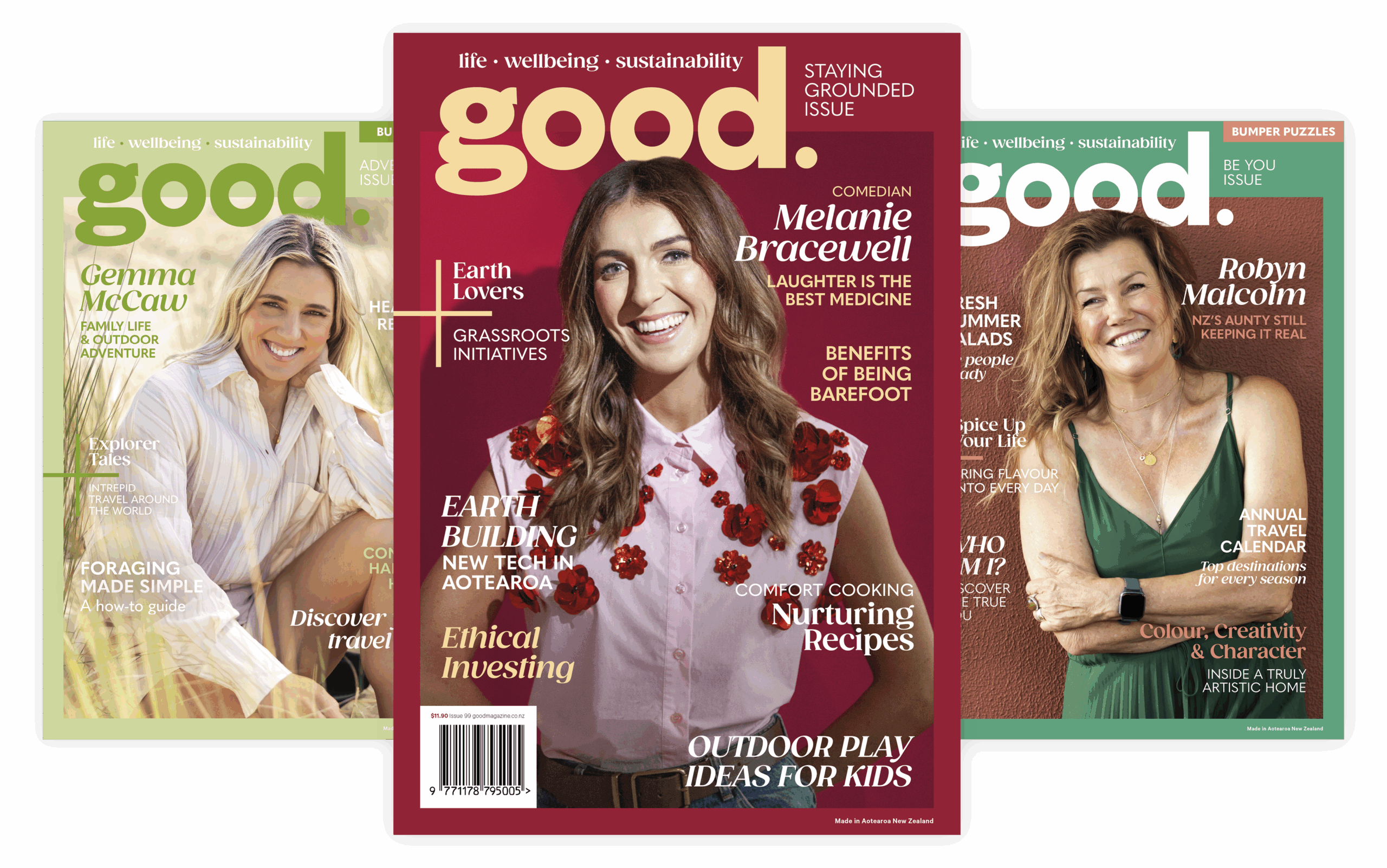From Goldenhorse to green goddess
She’s a trained opera singer who shot to the top of the charts with Goldenhorse, but there’s
more to Kirsten Morrell than her golden voice. The smart singer is an active spokesperson
for fair trade and environmental causes who attended last year’s climate change
conference in Copenhagen—and she’s on a mission to green up the recording industry
Photography: Toaki Okano. Hair: Lenny at Vada. Makeup: Amy E for MAC. Interview: Annabel McAleer
The fair trade
sticker makes
people more aware
of their choices,
and feel better that
they’ve supported
a system that pays
farmers and creates
sustainability for a
community
On being a green musician
There are so many musicians who are
leading the way. In England, KT Tunstall
and Corinne Bailey Rae are really active
environmentally, Damon Albarn is always
doing stuff with Greenpeace and so is
Radiohead. Here Don McGlashan has
been a stalwart of Greenpeace protests,
and there’s Dave Dobbyn and Chris Knox.
There are lots of artists, not just me, who
do community-oriented work, and give
their time.
The prospect of climate change and
carbon footprint zeroing has meant that
I don’t travel that much anymore. But I
went to the UK in June because of the Isle
of Wight Festival, which was lots of fun.
The festival’s been running since the 60s,
but it’s now a sustainable event, making
every attempt to be carbon-neutral. There
was loads of recycling going on! It meant
that as a punter you feel good because
you know the mess is going to be cleared
up at the end of the day. Even Cola-Cola
was on site, picking up rubbish and giving
information on recycling.
People leaving their tents behind
is a big problem at UK festivals. You
walk around after a festival and there’s
hundreds of tents, people just can’t be
bothered to pack them up and take them
home, because tents are so cheap there.
It’s awful.
There’s a handful of songs on my new
album Ultraviolet that have eco ideas or
themes. In the past four years that’s really
where my head’s been. I haven’t been rock
’n’ rolling it, I’ve been getting involved
in other things and the album’s really
reflective of that. I hope people love it for
that—and if they don’t love it, they can go
and listen to other things!
For the album release here in New
Zealand, I didn’t have very many green
options. I made the most informed
decisions I could. We used existing
packaging for the CD, since there was a
warehouse full of cases that would never
be used. The world is full of plastic that
won’t get used for anything, so I took
that option rather than having new ones
manufactured. If the album does take off
then my next step will be investing in 100
percent eco-packaging.
Until record companies take
responsibility themselves, and cover the
cost of packaging, the artists have to do
what they can. I make my t-shirts fair trade
because I can, and it also means people are
more keen to buy them.
On Auckland
I think we’re doing really well in New
Zealand. Putting aside Auckland’s
transport problems, New Zealanders have
taken on fair trade, and plans are taking
shape for Auckland to become a fair trade
city, and that’s fantastic.
I’m really interested in the Transition
Towns movement. The economic
improvements that come with that are
vast. You see immense changes just on a
local level. I went to one Transition Town
in the UK—Stroud, in Gloucester, which
used to be a bit run-down—which has
become a really nice centre with good
cafes that people actually frequent, people
taking business meetings in parks, people
cycling and using the integrated transport
system—it’s really good. I’d love to see
that happen here in Auckland.
If we all support local businesses and
make our own footprint smaller by walking
and shopping and exchanging things
locally, then the whole place becomes more
vibrant. The benefits are wide-reaching:
less crime, more money, people feel better
about living in the areas they are.
We’re in a fast-changing city at the
moment, and we all need to get involved
and keep vigilant about our local council
processes, transport system—and the
rugby World Cup. We need to think
practically about that event. Instead of
building some new super-party building,
why don’t we just support all the people
who have already invested in their
businesses in central Auckland, by inviting
all those overseas visitors into the central
city, to bars that already exist? ‘Party
central’ doesn’t make any sense and it’s
not going to add anything to our city at all.
I ride my bike in London, but I’m still a
little bit scared about cycling in Auckland.
I give it a go, but I feel safer cycling in
London, where there are cycling lanes
and free cycling maps so you can figure
out your safest route easily. I totally agree
with Jon Bridges that if Aucklanders
change their manners and attitudes on the
road, then more of us will be able to cycle.

On fair trade
I wave the fair trade flag pretty strongly.
I just finished reading Harriet Lamb’s
book, Fighting the Banana Wars and
Other Fairtrade Battles, which was really
inspiring. Simon from All Good Bananas
approached me and asked if I wanted to
learn about what they’re trying to do with
fair trade bananas in New Zealand, and so
of course I said ‘Yes! Absolutely.’
I do think cafes could do a better job of
singing the praises of fair trade. It’s good
to see the fair trade sticker because it
makes people more aware of their choices,
and feel better that they’ve supported
a system that pays farmers and creates
sustainability for a community.
On climate change
I went to the UN Climate Change
Conference in Copenhagen last year.
People might think I went over there sort
of just to muck around and play my songs,
but actually I went to get involved and get
informed on climate change.
I was part of a symposium and
workshop held at the Danish Museum,
right in the centre of the city. At our event
there were people from the cultural sector
throughout the UK, like Alison Tickell, who
runs Julie’s Bicycle, the big organisation
that’s greening up the UK music industry.
But it wasn’t just arts organisations; there
were government bodies and engineering
companies too. It was a pretty amazing
mix of people. While all the politicians
fought and took far too long to make their
minds up, we actually got a lot of work
done. There was a lot of development
and discussion about how to make our
industry less energy-intensive.
Arts and science and government
sectors have been mixing for centuries in
the UK, and they all work together—unlike
here! The goal is that the festivals of the
UK, touring companies and promoters
will have to declare their carbon footprint
when putting on any performance or show.
On volunteering
Music is the main thing I do, but I’m
volunteering and doing work in other areas
as well. I went to university, so it’s good to
get my mind involved in other things.
I’m really involved in the Outlook for
Someday filmmaking competition for
high school kids. I’m organising events
and assisting with publicity, getting
other people involved. The winner of last
year’s competition, Charlee Collins, did
so well, we got her over to Cannes for an
international competition—they call it the
‘Eco Oscars’. We’ll follow that up with the
new generation of filmmakers. We’ve got
so much talent here.
I made a mini-documentary for the
Greenpeace climate campaign about
attending the biggest UK climate rally of
all time, and finding out the perception
people had of New Zealand’s climate
stance. Greenpeace has a very hard job:
they can’t step on anyone’s toes, while at
the same time getting all the information
out there to the public.
On her favourite things
I love honey, and I worry about the bees.
Once they go, we go. Manuka honey
is incredibly good for your voice, and
generally your health. The artisan honey
company J Friends and Co is particularly
good.
I’ve been giving friends who are having
babies lots of Nature Baby stuff, and I give
overseas friends Living Nature products
as presents. And I try to be loyal to New
Zealand-made clothes. We’ve got fantastic
designers here.
Kokako is my favourite fair trade
Auckland cafe, and The Front Room in
Ponsonby is my local. The Bhana Brothers,
my local veggie mart up the road, was one
of the first to get in All Good Bananas—I
was so happy! Trade Aid on Ponsonby
Road is the most beautiful shop, I think.
Kirsten Morrell is touring soon: Auckland
(The Crib, Sept 30), Wellington (Happy,
Oct 8) and Christchurch (Dux De Lux, Oct
9). Ultraviolet is out now. Watch the video
for single ‘Ghosts’ at good.net.nz/2/ghosts

